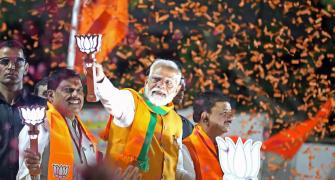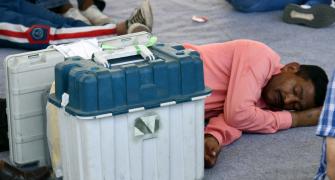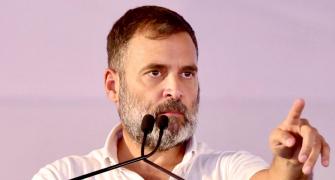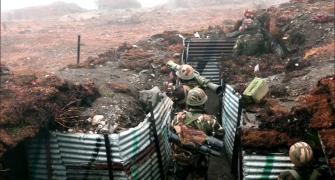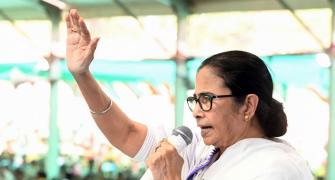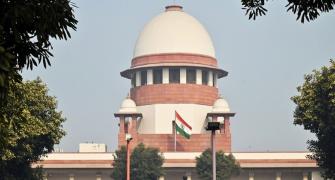India on Monday expressed hope that Iran will be able to resolve the current controversy over its nuclear programme within the ambit of the International Atomic Energy Agency, as senior officials from the Non-Alignment Movement countries tried to reach a consensus on a statement on the issue.
Coverage: The Iran vote and after
"We hope (the nuclear programme) issue is amicably sorted out," Minister of State for External Affairs Anand Sharma said after meeting his Iranian counterpart Manoucher Mottaki, on the sidelines of the NAM's Ministerial Meeting underway in Malaysia.
"Iran has said that it is going to engage the European Union in talks over the issue," Sharma told PTI.
A statement on Iran's nuclear ambitions is to be issued at the end of the two-day foreign ministers' meeting on Tuesday evening. However, some countries have contested the contents and the wordings of the statement.
Sharma also held bilateral meetings with his counterparts from Sri Lanka, Cuba, Vietnam, Belarus and Indonesia. "All countries expressed a keen desire to expand ties with India and were keen on a multi-sectoral engagement with New Delhi in fields like science and technology, IT and space," he said.
Sharma said there was also a general across-the-board support for India's candidature for United Nations Security Council seat.
Earlier, in an intervention at a special Ministerial Meeting of the G-77 and China, the minister said that New Delhi supported reform efforts aimed at ensuring an efficient and effective Secretariat of the UN that is 'accountable to its collective membership.'
Sharma said it is an obligation on the part of each member state to pay its contribution to the UN budget in full on time and without conditions.
He noted that the Group continued to face the same systemic challenges that originally brought developing countries into a united and cohesive force in the sixties, although under marked different conditions.
"Today, the international economic environment is harsher and requires redoubled efforts and greater solidarity. The voice of developing countries and their further empowerment in the international arena is vital for leveling the playing field," he said.
"We support the Group's efforts in preserving the universal and inter-governmental nature of the United Nations and the right of every Member State, irrespective of its level of contribution to its budget, to have a say in the running of the Organisation, in determining its priorities and in the effective delivery of its mandates," he added.
Any useful reform of the UN development system also cannot be a donor-driven process or if it confines it to being a 'niche player,' Sharma said, adding that there was a need to enhance the level of expertise that the UN system employs for the benefit of the developing countries.
Sharma said that in this context, measures that enhance the voice and participation of developing countries in the international decision making processes, especially in the Bretton Woods Institutions, would have a long-term value.
"The exercise should lead to the strengthening of the oversight and system-wide coordination functions of the ECOSOC. It should be able to assess the overall state of the world economy and provide leadership on international economic issues," he said.
Specialised agencies and separate entities continued to be required to serve specific mandates otherwise they would not receive the emphasis or financial resources they deserved, the minister said.
Promotion of system-wide coherence through the creation of large unified entities 'needs careful examination and implemented only where the gains are certain,' he said.
The ongoing process of consolidation and streamlining of the UN can be continued in a gradual and phased manner instead of a radical restructuring of the UN development system, which would only serve to divert the attention from the vital task of assisting developing countries in achieving the Millennium Development Goals, he concluded.

